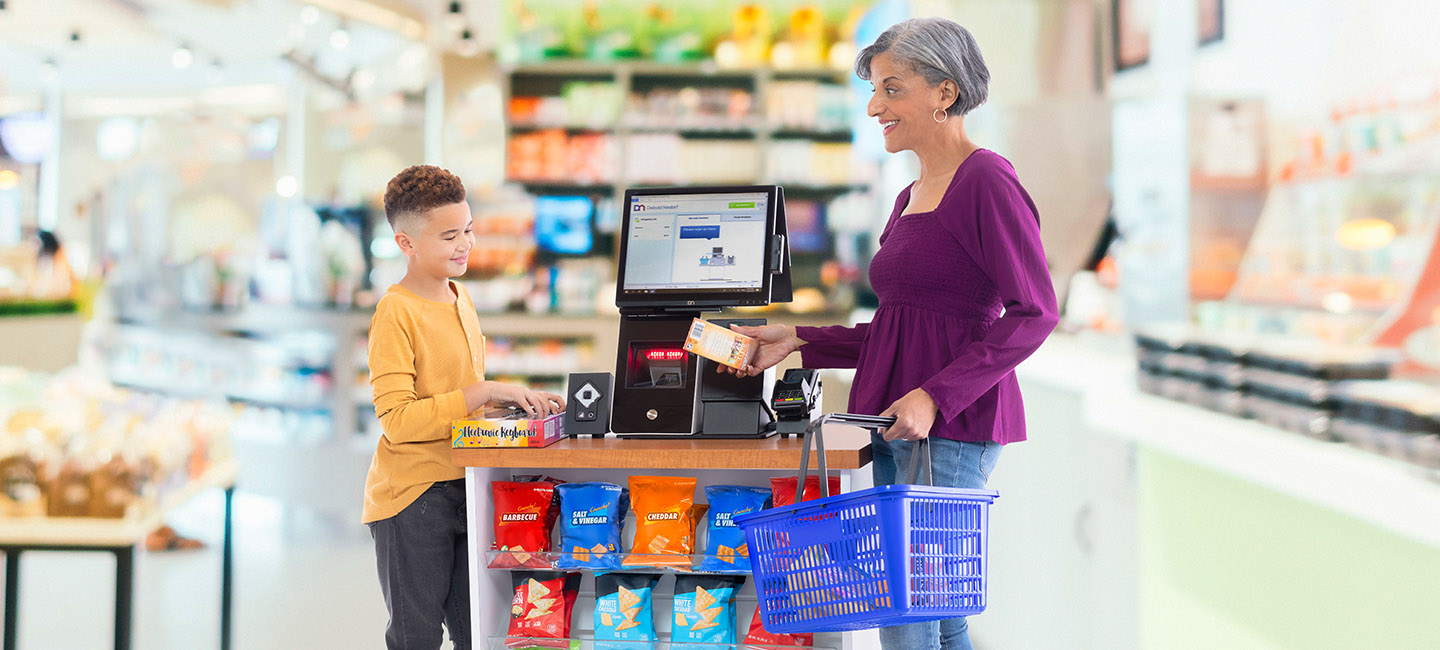New technologies and changing shopping behaviors are driving significant growth in self-service across the retail industry. From mobile payments and countertop ordering kiosks to self-checkout, consumers now want flexibility in how they interact and transact with retailers.
In this rapidly evolving environment, retailers need new systems to meet consumers' needs and future-proof their infrastructure for new payment and shopping methods. A modern POS system enables them to fine-tune customer experiences, seamlessly integrate into their store workflow, and easily support new upgrades.
Self-Service: Greater Convenience for Consumers and Lower Costs for Retailers
E-commerce and new technologies have led to significant changes in the retail industry over the past decade. Consumers now have many self-service formats to engage with retailers, from in-store kiosk ordering and mobile payments to self-checkout stations.
While self-service first appeared in supermarkets in the ‘90s, many leading retailers, such as Walmart, Target, Aldi, Tesco, and Carrefour, have since deployed self-checkout lanes. The adoption of self-service channels has accelerated since the pandemic when, for instance, quick-service restaurants deployed kiosks and mobile ordering systems to support contactless service.
Self-service continues to grow in popularity in all retail segments because it benefits both retailers and consumers. Many consumers
prefer self-service over traditional checkout, as it offers greater convenience and lower wait times. And for retailers, self-service improves store efficiency, enhances customer loyalty, and reduces the total cost of operation. The best deployments offer a mix of attended and unattended checkout.
The Challenges of Deployment and Inflexibility
Even as retailers embrace new self-service options, they face several challenges in deployment, finding the optimal checkout mix, adopting new journeys, and enabling new payment methods.
Early-generation self-service and self-checkout technologies cannot support the latest checkout trends or payment methods. Additionally, many retailers find existing systems cannot be customized to their design, presentation, and staffing preferences.
Poor deployments of inflexible systems ultimately degrade the customer experience. One survey found that
two-thirds of shoppers had a failure at a checkout lane, which can diminish the customer experience or even lead to cart abandonment. Poorly managed
self-checkout can also increase the risk of theft, and some self-checkout formats may not comply with the Americans with Disabilities Act.
A more significant yet underreported issue is that many retailers find inflexible self-checkout solutions failing to align with their store formats, workflows, and customer preferences. As traffic, customer behaviors, and basket size can vary by store time of day, retailers need flexibility to scale self-service and staff up or down based on their needs.
Meeting Multiple Consumer Journeys with Modularity
A “one size fits all” self-service approach no longer works in this environment. Retailers now need solutions with a “right-sizing” approach that integrates into the existing IT ecosystem and adapts to customer journeys.
A modern POS should accommodate retail service in each of the formats of assisted checkout, semi-assisted checkout, and full self-service. A modular device can easily convert terminals between full self-service and staff-supported service and support multiple checkout scenarios with one single platform approach.
The
DN Series® EASY ONE enables retailers to support all customer journeys with the same platform. Compact, configurable, and versatile, its modular design features several options for screens, scanners, and payment terminals, supporting a customizable, ADA-compliant setup to meet the retailers’ and customers' needs.
This flexibility enables retailers to use the DN Series EASY ONE for multiple applications and offers the additional benefit of keeping their existing POS software while adopting new self-service scenarios. The ability to add new peripherals also supports easy upgrades at a lower TCO by using the same modules once for multiple stores and then changing the formats as needed.
EASY ONE can support self-service in a grocery store with semi-assisted checkout and 100% lane availability at off-peak high throughout peak. In fuel and convenience stores, it supports wet and dry stock management with attendant validation of wet stock purchases. Fashion retailers can use its modular form factor to fit any custom furniture design or deployment approach. And for hospitality settings, EASY ONE is configurable as a traditional or tabletop self-service terminal.
As successful self-service depends on customization, retailers need flexible, modular solutions that fit their unique needs. This supports a great customer experience today and enables retailers to future-proof for tomorrow’s scenarios, preferences, and payment methods.
